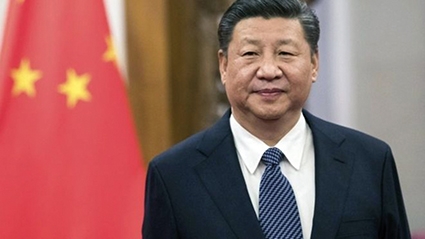After Criticism, China Vows to Improve its ‘Belt & Road’ Initiative
China has recently been under heavy criticism from major world countries including the US and members of the EU, for its ‘Belt and Road Initiative’ (BRI). The latter is a multi-billion-dollar project according to which the country’s east will be reconnected (as in ancient times) to Europe through the shortest distance, whether via southern Russia, Central Asia, or the South Caucasus and the Black Sea (although that is not the only corridor the Chinese are working on).
The western countries claim that Beijing is using dubious methods to trap small Asian and African countries in debt and thus easily manipulate them on the world stage. One of the most notable examples is Sri-Lanka, which gave up its largest and most strategically important port to China due to indebtedness to Beijing.
It is against this background that delegations from around the world traveled to Beijing this week to take part in a forum on China's BRI. The three-day forum assembled representatives of more than 100 countries, including 40 heads of state and government seeking to benefit from the projects. From Georgia’s neighborhood, the Russian, Uzbek, Azerbaijani and Belarusian presidents attend the forum.
The summit is crucial for Chinese leaders as they will try to persuade the world leaders that the BRI bears no potential harm for Eurasian economies. The Chinese understand that one of the pillars of BRI’s success will be a level of trust. A lack of trust or fear of being ensnared in Chinese debts will undermine the BRI.
The Chinese concerns are reflected in what was said during the first meetings of the summit. China’s President Xi Jinping said that "we will overhaul and abolish unjustified regulations, subsidies, and practices that impede fair competition and distort the market". He added that China “will treat all companies, enterprises, and business entities equally and foster an enabling business environment based on market operation and governed by law."
According to the Chinese President, the BRI will focus on transparency and clean governance. He also stressed that infrastructure and trade created by the BRI should also engender economic growth for each participatory country.
China was criticized for being overly protective of companies and having quite a negative stance on foreign companies participating in tenders in China. Xi Jinping also promised to allow foreign companies freer participation across the country.
The Russian President once again supported the BRI by stating that the initiative is perfectly aligned with the Russian pet-project ‘Eurasian Economic Union’. There are many hidden negative undercurrents in China-Russia relations, but Putin’s yet another public approval of the BRI enhances the appearance of cooperation between the two countries.
Overall, it can be argued that China took a conciliatory tone towards those existing misunderstandings which appeared between Beijing and Europe and the US over the past year.
Xi’s speech is also notable as it comes right before the final chapter of large trade negotiations between Beijing and Washington. Also, the forum serves to dissipate fears across the world of Chinese G5 technologies. The US has so far worked hard to warn its allies to ban use of G5 as it is deemed in the West to be fragile security-wise.
It is unclear how many will buy into the Chinese softer rhetoric on the problems surrounding the BRI. But the very fact that Beijing decided to talk about it means that problems do indeed exist.
By Emil Avdaliani
Image source: EPA/bbc.com











